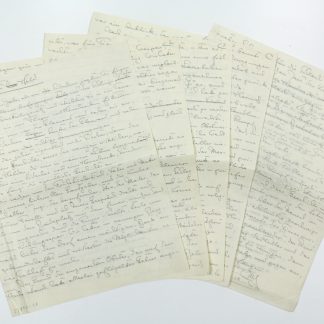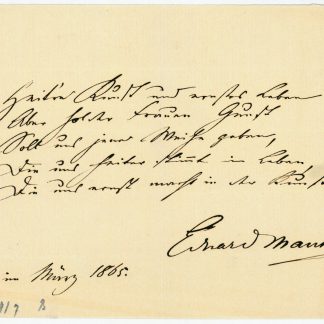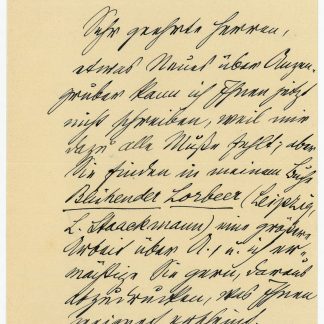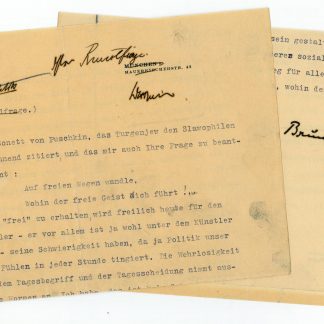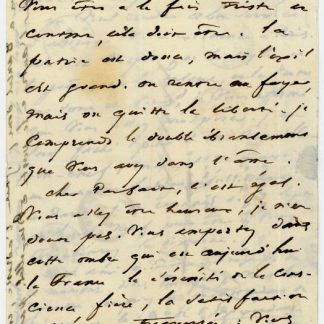Autograph letter signed ("V.").
8vo. 3 pp.
€ 7.500,00
In French, to Noel Parfait in Paris: "Your kind letter moves me. You are sad and happy at the same time, and it is quite normal. Homeland is sweet but exile is grand. One goes back home but one has to give up one's freedom. I understand the double shock your soul is experiencing. But it does not matter, dear Parfait. You are going to be happy, I have no doubt about that. You are taking into the darkness that prevails in France nowadays the serenity of a proud conscience and the satisfaction of having overcome the ordeal. You will feel respectable among all the despicable people. That is an austere kind of joy but it is indeed a joy. Thank you for all the details you gave me. I congratulate and envy Dumas, who was able to help you and ensure that you will have enough to live on in Paris. That, plus all the intelligence, style, grace, talent and virtue that you have! I assure you that you are going to do very well. I am sorry for H.M. the world's biggest scoundrel [H.M. stands for His Majesty, most likely Louis-Napoleon], but there is going to be one successful honest man in Paris. I already know seven or eight of them, maybe nine, and that will make ten with you. Our friend must be in Brussels at the moment. Tell him that I am going to answer his letter and ask him to send me, in the meantime, the issue of l'Independance (by mail, since it costs two sous there and six francs here) in which my note on George Sand was printed. Also, I would like to have his address in Brussels […]". In a postscript, Hugo has added, "Would you be so kind as to have the first of the two letters I am enclosing handed over to Bance, whose address I do not know, and mail the second one in Brussels? Sorry and many thanks".
In February 1860, Hugo was still living in exile on Guernsey, still writing about the darkness that prevails in France and the world's greatest scoundrel. It was an exile that had begun in December 1851 when a coup d'etat took place in France, which eventually resulted in the Second Empire under Napoleon III, and it did not end until the return of liberty and the reconstitution of the republic on 4 September 1870. However, his exile had recently become a voluntary gesture and an act of pride, a time to stand against Louis Napoleon. On 15 August 1859 (the birth of Napoleon I), Napoleon III offered an amnesty to exiles, which was accepted by some, but not Hugo. In a poem, "Ultima verba", he marked his decision, stating "No one will suppose that I personally can take any notice of the thing called an amnesty. In the present condition of France, protest - absolute, inflexible, eternal protest - that is my duty. True to the engagements I have made with my conscience, I shall share the exile of freedom to the end. When freedom returns, I shall return". The truth of the matter was that Hugo could not return during the reign of Napoleon III without inflicting a deep wound on his pride, and he could not resign himself to that. He was also well aware of the status and commercial value of banishment, even though the banishment was now self-imposed. The personal defiance of Napoleon III, the deliberate choice of martyrdom, gave Hugo a new heroic dimension.
With integral address leaf.


